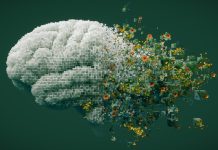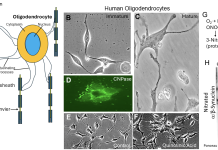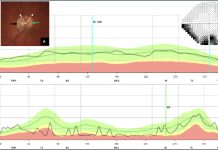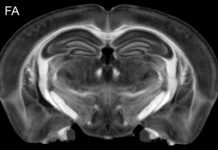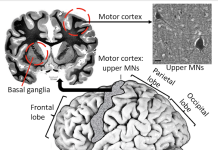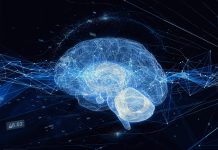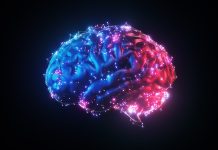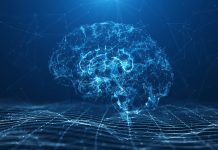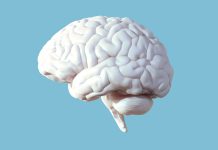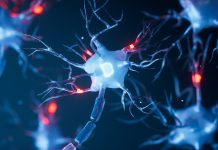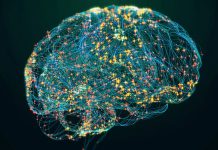Open Access Government produces compelling and informative news, publications, eBooks, and academic research articles for the public and private sector looking at health, diseases & conditions, workplace, research & innovation, digital transformation, government policy, environment, agriculture, energy, transport and more.
Home 2026
Archives
Could the mind sport bridge provide much-needed social connection in the digital age?
A third of young people in the UK experience loneliness linked to screen use. Bridge: A MindSport for All (BAMSA) asks: Could the mind sport bridge provide the much-needed social connection in the Digital Age?
Novel adjunct treatments for posttraumatic stress disorder: Neurofeedback and deep brain reorienting
Dr. Ruth Lanius, Scientist at London Health Sciences Centre Research Institute (LHSCRI) and Psychiatrist at London Health Sciences Centre (LHSC) discusses the need for novel adjunct treatments for posttraumatic stress disorder (PTSD), highlighting two promising approaches: neurofeedback and Deep Brain Reorienting (DBR).
The future of brain interfacing
Neural Speech Inc. aims to provide a link to the outside world for people who are unable to communicate. CEO and Chief Scientist, Philip Kennedy, explains the potential opportunities associated with brain interfacing.
iPSCs and NSCs model newborn brain injury
This article discusses research by Dr. Lee J. Martin and his team on HIE, a leading cause of neonatal mortality. They use human induced pluripotent stem cells (iPSCs) and neural stem cells (NSCs) and emphasize the vulnerability of oligodendrocytes, sharing how these cells can accumulate toxic misfolded proteins, potentially causing severe neural damage and long-term cognitive disabilities in affected infants.
OCT: A practical tool for diagnosing buried optic disc drusen
Dr Adèle Ehongo addresses the diagnosis of buried optic disc drusen (BODD) using Optical Coherence Tomography (OCT) and the importance of correlating visual field abnormalities and OCT data, especially in normal tension glaucoma, to distinguish it from Optic Disc Drusen (ODD).
3D microscopic whole brain neurodegenerative MRI
This article by G. Allan Johnson, Ph.D., focuses on advanced MRI techniques for studying neurodegenerative diseases, exploring the challenges of screening therapies for conditions like Alzheimer’s and Parkinson’s, and highlighting the promising research conducted at Duke University.
Protecting infants from brain damage: A focus on HIE
Lee J. Martin, PhD from Johns Hopkins University School of Medicine, discusses the pathology of infant hypoxic-ischemic encephalopathy (HIE), and the research he and his team are conducting to understand cell death mechanisms related to HIE and therefore identify new therapies.
A ten-minute brain rest lets AI connect the dots across neuroscience
Dr. Masanori Shimono from Keio University highlights the importance of recording spontaneous neural activity in neuroscience and suggests that modern AI techniques can reveal meaningful patterns, offering insights into fundamental brain functions.
Addressing the challenges of dementia care
Individuals living with dementia and their care partners often face numerous challenges that can lead to feelings of isolation. This article outlines how the Jockey Club Centre for Positive Ageing’s crisis management hotline service has become a vital resource for supporting the wellbeing of those affected by dementia.
Quantum bits and neural interpretation of information
Dr Peter Verheyen, DMD from Sola Society & Academy, Vienna University, delves into the world of quantum bits and neural interpretation of information.
Metabolic diseases and the brain: Obesity, type 2 diabetes and neurofibrosis
Garron Dodd, Head of the Metabolic Neuroscience Laboratory at The University of Melbourne, Australia and Founder, Chief Scientific Officer of Gallant Bio, investigates the brain ‘goo’ behind obesity and type-2 diabetes - and how we can treat it.
The bridge revolution: Mind sports reshape Scotland’s educational landscape
Mind sports education is gaining momentum in schools. Researchers at the University of Stirling are investigating the ways that strategic games like bridge can enhance skills development and academic engagement.
Targeting the brain for the treatment of type 1 diabetes
Michael W. Schwartz, MD, explains the role played by the brain as a cause of elevated blood sugar and related metabolic derangements in type 1 diabetes, and how therapeutic targeting of this brain system can eliminate the need for insulin therapy in animal models.
Healthy aging: How science and daily habits preserve brain function
Key nutrients like omega-3 fatty acids, curcumin, and NAD+ are important for maintaining cognitive function, but their effective delivery to the brain is hindered by the blood-brain barrier (BBB) and age-related declines in nutrient transport. Dr Rebecca Crews and Heather Makar explore the importance of overcoming these delivery challenges to enhance strategies for cognitive longevity and healthy aging.
Unlocking the brain: Pioneering psychiatric genomics at the University of Arizona
Psychiatric disorders challenge us deeply. At the University of Arizona, researchers dissect their molecular roots, focusing on genomics. They aim to decode miRNA’s role in conditions like depression, using advanced analysis to forge a path towards personalized mental health care. Find out more in this exclusive Q&A.
Cultural adaptation of the iSupport for Dementia psychoeducation programme for care partners
This article examines the cultural adaptation of iSupport for Dementia, an online platform developed by the WHO for dementia caregivers. It emphasises research findings that demonstrate the program’s effectiveness and benefits for Chinese care partners.
Empowering voices: Breaking mental health stigma
John Hoey and Mary Cannon from Department of Psychiatry, RCSI University of Medicine and Health Sciences, Dublin, Ireland, share their research around breaking mental health stigma to empower voices.
The future of AVS, dizziness, and vertigo in emergency departments Part IV: Priorities for...
In the fourth article of this five-part series, Dr Millie Nakatsuka discusses how reform must be integrated into the broader context of the public health landscape.
The sociology of bridge: Sport recognition for mind sports
The game of contract bridge, as we know it today, originated in the 20th century – but what lies ahead for bridge as a mind sport? Professor Samantha Punch, the academic behind “Bridge: A MindSport For All”, provides the answer.
A novel avenue to explore in the treatment of dementia
A collaborative project between the University of South Florida and The Healthy Aging Company is exploring how a new biological entity called ALF5755 could be a candidate drug for the treatment of dementia and Alzheimer’s disease.


